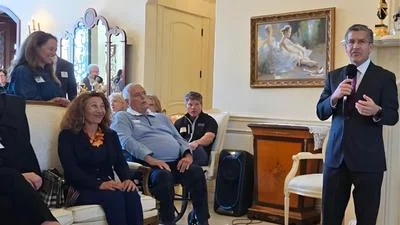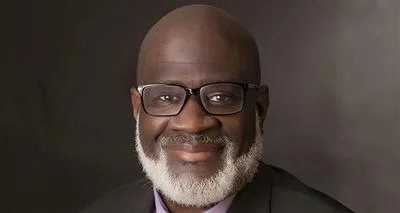Sen. Ann Gillespie | Facebook
Sen. Ann Gillespie | Facebook
State Sen. Ann Gillespie (D-Arlington Heights) is alerting Illinois residents to an assistance program available to help individuals and families struggling with water and sewer utility bills.
“The Department of Commerce and Economic Opportunity recently announced the new $42 million Low-Income Household Water Assistance Plan, under the Help Illinois Families initiative, to help low-income families unable to pay water and sewer bills avoid shutoffs,” Gillespie posted on Facebook. “Apply for assistance by calling 833-711-0374.” She also posted a link for more information.
The Pritzker Administration also recently began leveraging federal ARPA funds to help Illinois families access and afford home energy assistance and other essential services during the pandemic. In partnership with the Illinois Department of Commerce and Economic Opportunity (DCEO) and building on the state’s Low-Income Home Energy Assistance Program (LIHEAP) and the Community Services Block Grant (CSBG) program, the state’s fiscal year 2022 budget authorizes an expansion of the programs for eligible Illinoisans seeking assistance to cover costs of utility bills, rent, temporary shelter, food, and other household necessities.
This initiative remains available to all qualifying low-income households, regardless of how they may be affected COVID-19. Eligible families may qualify for hundreds of dollars of support; all applications will be reviewed on a first-come, first-served basis and are subject to funding availability.
Over the past decade, the cost of water in Chicago has tripled, representing the fastest rate increase among six Great Lakes cities examined by WBEZ and American Public Media in a joint investigation of rising water costs in the region.
The most dramatic increases took place during the tenure of former Mayor Rahm Emanuel, who twice proposed increases to the city’s water and sewer rates. The Chicago City Council approved both proposals.
Data shows the hikes have primarily hit those who can least afford it the hardest.
Research shows Chicago residents now pay more for their water than the residents of Phoenix, a city located in an Arizona desert that pipes in water from sources as far as 300 miles away.
More recently, Chicago Mayor Lori Lightfoot announced the city will no longer shut off a resident’s water supply because of unpaid utility bills.
In establishing the policy, Lightfoot said access to water is a basic human right that too many Chicagoans have had to go without because they have had to choose between paying the utility bills and paying for other needs, adding the city’s new Utility Billing Relief and Debt Forgiveness program aims to alleviate the burden of overdue water bills on residents.
The new policy will also provide pathways for residents to settle their utility debts by paying a discounted rate of 50% for water service, sewer and water-sewer tax bills. After one year of meeting the discounted payments, the city would forgive previously incurred debt. An estimated 20,000 people will be affected by the relief program, the mayor said, and the changes would lower the average homeowner’s metered bill from $53 to $33 a month.






 Alerts Sign-up
Alerts Sign-up